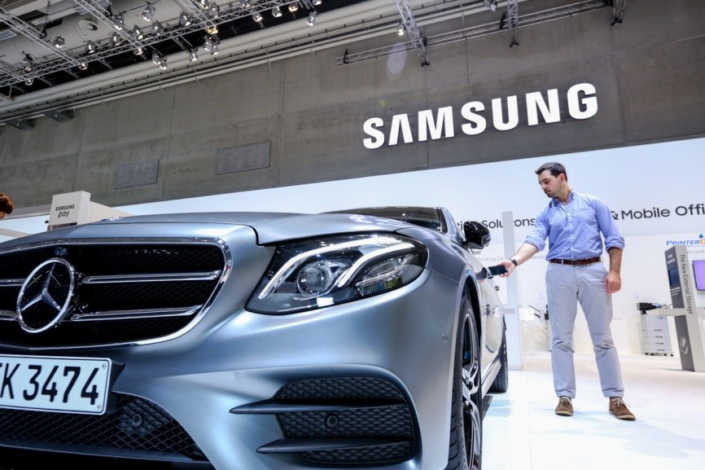
Samsung strengthens interest in autonomous driving with $300 million investment fund
Samsung has created a $300 million fund to build on a number of earlier investments in auto-related startups and technologies.
Earlier this year, the electronics giant bought Harman, a premier supplier to original equipment manufacturers in the automotive sector.
The two companies have now jointly launched a new strategic initiative, focused on developing innovations for next-generation, smart, connected vehicles.
The main area of interest in autonomous driving, or advanced driver assistance systems, which are referred to in the auto trade as ADAS.
The new $300-million Samsung Automotive Innovation Fund will focus exclusively on the automotive market.
This will include connected car and autonomous technologies, smart sensors, machine vision, artificial intelligence, high-performance computing, connectivity solutions, automotive-grade safety solutions, security, and privacy.
In addition to the fund, Harman, has established a new Autonomous / ADAS Strategic Business Unit (SBU).
The new Harman SBU, which will report to Harman’s Connected Car division, will work with the Samsung Strategy and Innovation Center (SSIC) Smart Machines team to develop key technologies for safer, smarter, connected vehicles.
The SSIC Smart Machines team is an advanced automotive engineering group dedicated to enabling next-generation mobility solutions.
Young Sohn, president and chief strategy officer at Samsung Electronics and chairman at Harman, says: “During this period of extraordinary transformation in the automotive industry, we are excited to play a leadership role in supporting and shaping the future of smarter, more connected vehicles.
“The Autonomous/ADAS Strategic Business Unit and automotive fund reflect the company’s commitment to the values of open innovation and collaboration.
“In partnership with OEMs and startups, we will make the driver and passenger experience safer, more convenient, and more enjoyable.”
According to the World Health Organization, road injuries are among the top 10 causes of death worldwide.
In the US alone, the most recent data suggests that there are more than 35,000 fatal crashes each year.
Samsung’s goal in the automotive market is to tackle this challenge by bringing to market technologies, from sensors to data-processing solutions, that will help make cars safer while creating a more comfortable and convenient mobility experience.
To address the increasing demand for integrated solutions, particularly those for automated driving, Samsung and Harman will focus on engineering, high-performance computing, sensor technologies, algorithms, artificial intelligence, as well as connectivity and cloud solutions that enable Advanced Driver Assistance Systems (ADAS) and automated driving.
Dinesh Paliwal, president and CEO of Harman, says: “There is already a high demand for ADAS solutions, and that demand is rapidly growing with the advancements in connected cars and autonomous driving.
“This strategic business unit demonstrates Samsung’s and Harman’s commitment to answer that call – to be the definitive partner for seamless and integrated technologies.
“It also reflects the incredible power that Samsung and Harman, as a collective force, will bring to our OEM customers as we combine Samsung’s scale and resources with Harman’s deep automotive experience and networks. Together, we are driving the future of automotive.”
Industry veteran John Absmeier has been appointed senior vice president of the new Harman SBU, and will also retain his current role as vice president of smart machines for SSIC. As
a leader in both organisations, Absmeier will look to ensure seamless collaboration to bring autonomous and ADAS solutions to the market.
The first strategic investment of the Samsung Automotive Innovation Fund will be in TTTech, a leader in functional safety, deterministic networking, real-time systems, and complex software integration for ADAS and automated driving platforms.
Earlier investments by Samsung’s existing investment funds have included stakes in automotive startups, including AImotive and Renovo for automated driving; Quanergy, TetraVue, and Oculii for sensors; Autotalks and Valens for connectivity; and Graphcore for high-performance computing.
To date, Samsung has secured licenses for on-road testing of autonomous driving software and hardware under development in Korea and California.
Samsung will not enter the car-manufacturing business, remaining focused on working with automakers and mobility enablers to develop the next generation of automotive innovation.
